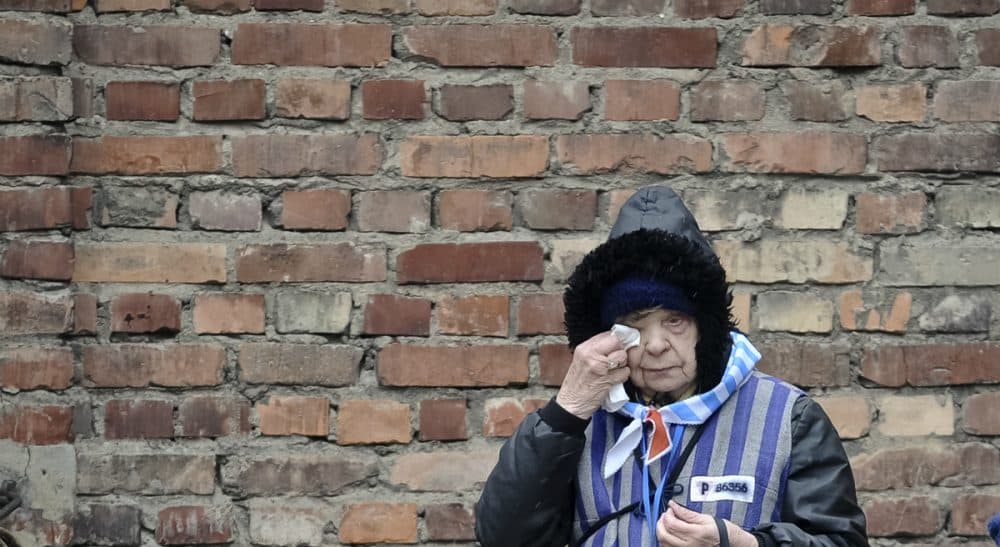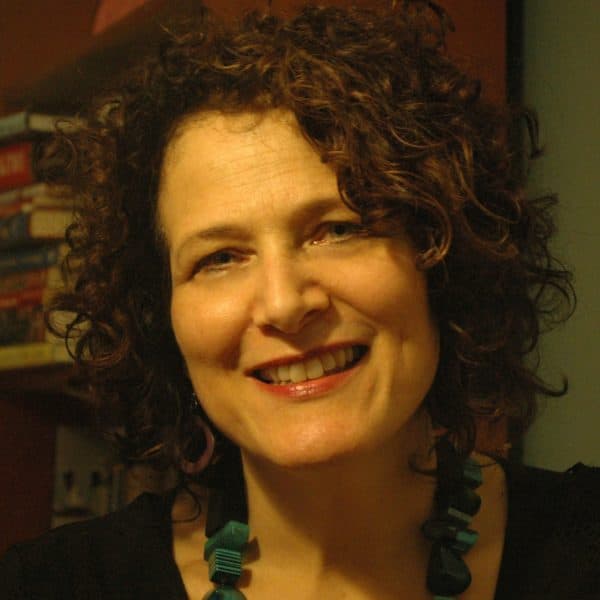Advertisement
For Those Who Didn't Survive, And For Those Who Didn't Get A Chance To Live

I was standing in the security line at Chopin airport in Warsaw. I had just left Poland where I’d been leading a study seminar, and was on my way to Berlin. In front of me, was German man around 40, dressed in a casual, button-down shirt and jeans. We had been chatting a little while, when he said, "I think people should study something other than World War II."
A few days later, on my flight back to Boston I ran into a friend who told me that his rabbi once said, “Kids should not study too much Holocaust; we don’t want our Jewish youth to dwell in victimhood.”
All of my grandmother’s siblings’ might have had children themselves. But those children, and those children’s children, simply don’t exist.
I’m the child of a Holocaust survivor and scholar from Lublin, Poland. I create immersive travel experiences in Poland that focus on Jewish life. As someone who spends a lot of time with this history, those two comments had special resonance for me. On this Yom Hashoah, or Holocaust Remembrance Day, I find myself reflecting on them.
What I wish I had said to the man at the airport is that just because World War II ended 75 years ago, does not mean the ripple effects have subsided.
So, why is it important to study and remember the Holocaust?
There are millions of people who should be walking the streets of Poland, Germany, France, Greece, Hungary — and many other countries. All of my grandmother’s siblings’ might have had children themselves. But those children, and those children’s children, simply don’t exist. I did not grow up walking in the streets of Lublin, speaking Polish, going to school with Jewish and Polish classmates. The world looks different because six million were murdered. When I go to Poland I feel that absence. Should I ignore it?
Perhaps we fear that studying the Holocaust means delving into darkness we can’t come back from — or creating guilt we can’t assuage. But that’s not the way I look at it.
My friend’s rabbi used the phrase, “dwell in victimhood.” But when I talk about the Holocaust, I think about remembering people and telling their stories. Like my mother’s teacher Hela Trachtenberg. Her name was Hela but her nickname was Czuczka which means piglet (I don’t know where the name came from). During the War, Jewish children in Poland were forbidden from going to school, so my grandparents hired Czuczka to teach my mother and my aunt. Though reluctant at first, my mother soon learned to love Czuczka, who risked her life to teach them. Czuczka was murdered by the Germans in the ghetto on the outskirts of Lublin. She was found lying outside her home, her eyes pecked out by birds. Should she just be forgotten? Should her courage be abandoned as her body was?
Advertisement
My friend’s rabbi used the phrase, 'dwell in victimhood.' But when I talk about the Holocaust, I think about remembering people and telling their stories.
What about my grandmother’s sister Zelda? There are no pictures left of her. There’s no record of where she was killed. All we know is she had red hair and was about 22-years-old when she was taken away in a truck, my grandmother running after her screaming. We have no grave for her. Must we even not utter her name?
I do not blame the man in the airport line. Maybe he was exhausted from having this history brought up all the time. But I have no choice but to dwell there ... it’s woven into my history.
If I had the chance to do it over, I would say to him, “I look at this history because I have to. I dwell here because these are my people, and they are not only my past, but also my present. I am honored to tell their stories. If you say, we should study something other than World War II, because you are tired of dealing with so much death, so much pain, you are also turning away from all these individual lives. I’m not dwelling in death and darkness, but rather in the lives of these people. By remembering even fragments of their lives, we are giving a place to those who have nowhere else to dwell."
